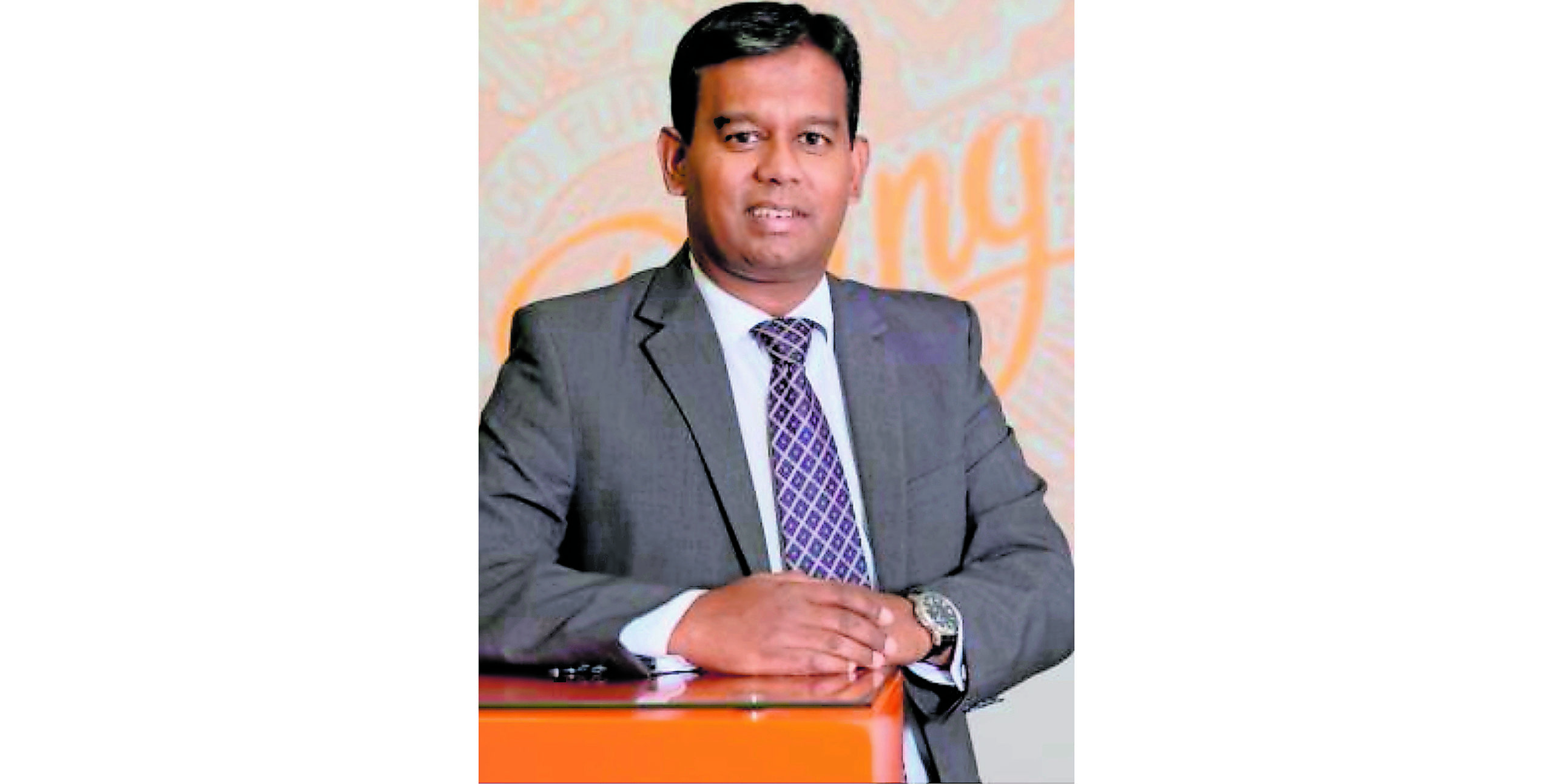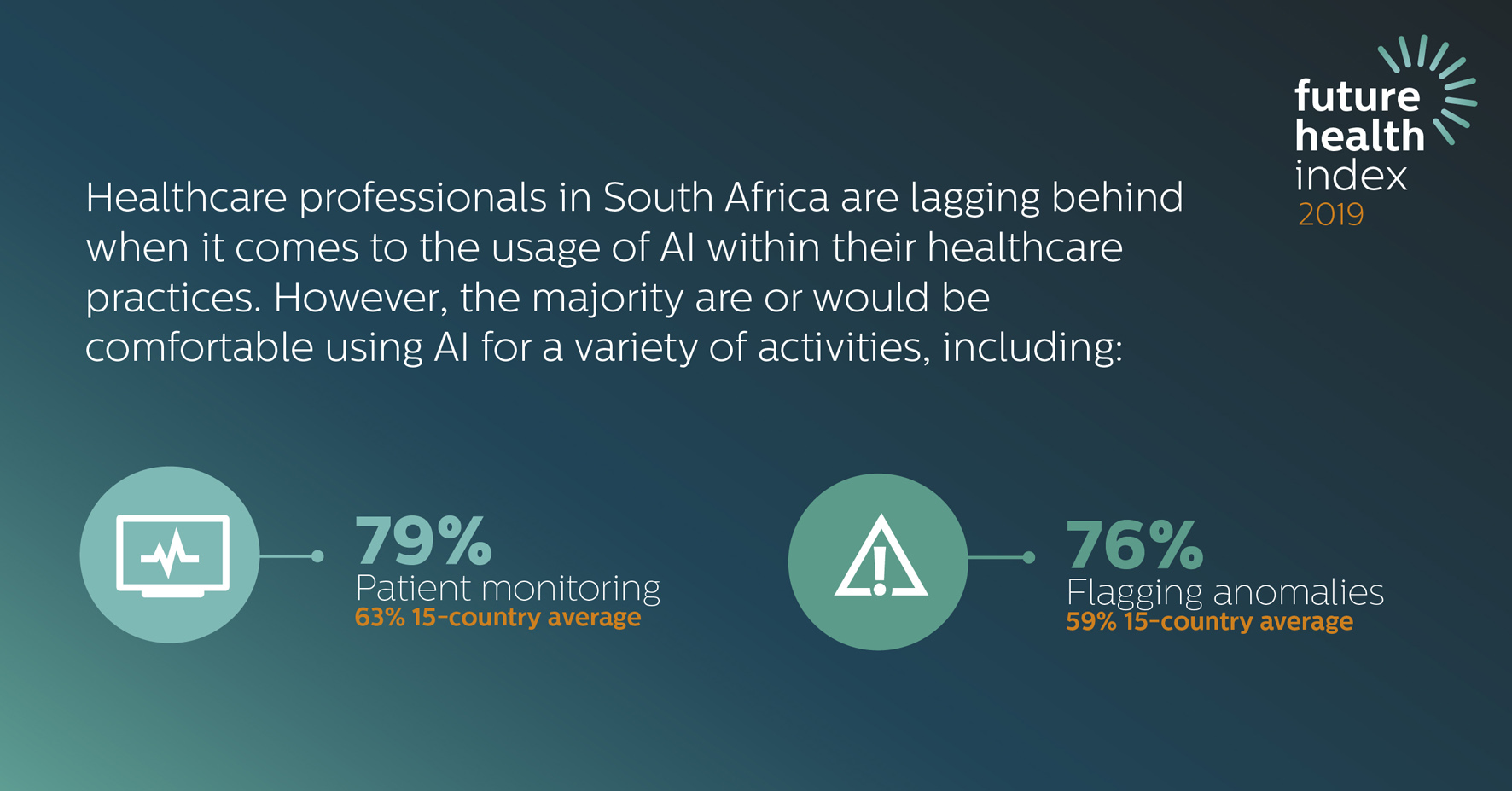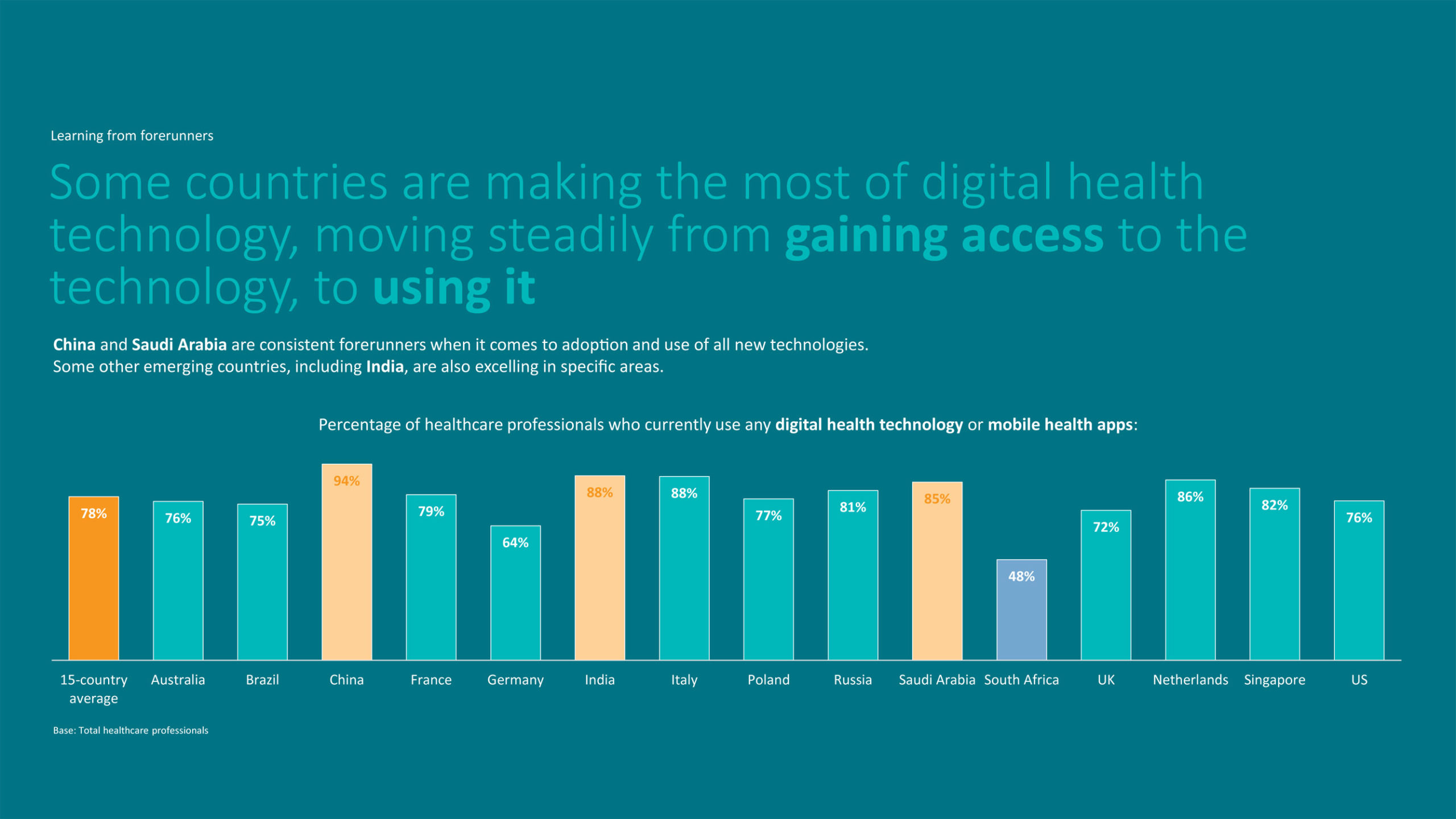Digital health technologies empowers patients to take control of their own health
Sponsored
The Future Health Index is an independent research initiative commissioned by Philips annually since 2015 that helps to determine the readiness of countries to address global health challenges and build sustainable, fit for purpose, national health systems.
Healthcare systems vary from country to country, but they share a common goal: they provide quality care, with improved experiences for both patients and healthcare professionals.
The Future Health Index 2019 is Philips’s fourth annual index. It was based on a survey of more than 15 000 individuals who represent the adult general population and 3 100 healthcare professionals across 15 countries, including South Africa.
The report this year focused on exploring the impact of digital health technology on healthcare professionals and patients — two elements of the quadruple aim of healthcare — the other two elements being better health outcomes and lower costs of care.

Managing director of Philips South Africa Romulen Pillay explained the key takeaways from this year’s South African report to the Mail & Guardian.
1. What are the key themes that have emerged from the Future Health Index (FHI) 2019?
Three clear themes emerged from the FHI 2019 for South Africa:
Engaged and digitally enhanced healthcare professionals
The increasing numbers of healthcare professionals who use technologies such as digital health records (DHRs) and telehealth obtain better results and have higher job satisfaction.
Empowered patients — access to data and more control
Individuals with access to their own health data are far more likely to engage with that information in ways that improve the quality of care and their overall experience.
Learning from forerunners
The experiences of digital health technology forerunners such as China, Saudi Arabia, India and Russia provide valuable lessons that all countries can apply.
This leads to the conclusion that incorporating new technologies into healthcare is a journey, not a one-time event, enabling healthcare professionals and patients to adapt as needs evolve and new challenges arise.
1. What were the FHI’s key findings about the challenges facing South Africa’s health system?
The findings for South Africa clearly indicate that more momentum is required to increase the adoption and utilisation of digital health technology in the country.
We see that while some South African healthcare professionals are starting to use various forms of healthcare technologies in their day-to-day work, more momentum is needed to fully recognise and make use of their potential.

The research showed that only 40% of South African healthcare professionals are currently using digital health records in their hospital or practice because of challenges around infrastructure and the cost of investing in this infrastructure. This is markedly lower than the 15-country average of 76%.
The lack of digital health technologies currently being utilised mean that only 38% of health professionals in the country believe that they are empowered to deliver the best care to their patients, whereas nearly a third (29%) believe that state-of-the-art technology would best enable them to optimally provide care to the whole population.
Cost is also a challenge for patients, who do recognise that they have an important role to play; 86% of South African patients believe they have the biggest impact on their own health, but costs and data security hinder greater adoption of digital healthcare technologies.
This is why less than a third of South Africans use digital health technology or mobile apps to track their key health indicators.
2. Where do the biggest opportunities for both healthcare professionals and patients lie?
Interestingly, it is the country’s biggest challenge that presents its biggest opportunities: using digital health technology and health data positively impacts the experience of healthcare professionals and their patients.
Three-quarters of the country’s healthcare professionals reported that their experience had been positively impacted over the past five years from being able to access to patients’ full medical histories.
Using digital health technologies also helps empower patients to take control of their own health. South African patients indicated that having access to their own health data makes them more likely to engage with it in a way that will improve the quality of care they receive.
In fact, 58% of patients in South Africa indicated that when they have access to their digital health records they were more proactive in taking care of their health.
3. What untapped technologies are emerging strongly as the solutions that can most improve the overall healthcare experience in South Africa?
Telehealth — the remote access to and management of health — emerged strongly as an untapped tool for healthcare professionals. It can bridge the gap for the 74% of South Africans who did not visit a healthcare professional when they had a medical reason to go.
It has the power not only to drive greater access to care, but also to improve the patient experience by cutting down on the amount of time they need to wait to see a professional: 88% of patients reported having to wait over an hour to see a general practitioner, while 92% had to wait over an hour to see a specialist. Waiting times are considerably longer in public health institutions.
Telehealth can change that: it provides an opportunity for the country’s healthcare system to leverage telehealth technologies that address the challenges associated with the shortage of healthcare professionals.
AI (Artificial Intelligence or Adaptive Intelligence) also has an important role to play, with the majority of South African healthcare professionals feeling comfortable using AI to treat patients, despite low levels of adoption.
The country’s healthcare professionals show more confidence in using the technology than their global counterparts: 79% would be comfortable using it for patient monitoring, compared to the 15-country average of 63%. In addition, 76% would be happy to use it to flag patient anomalies, compared to the 59% in the 15-country average.
There are thus many untapped opportunities for South Africa to further leverage AI technology to drive efficiencies and improve experiences throughout the healthcare system.
4. What can South Africa learn from other emerging economies that are forerunners in using technology to overcome access to healthcare challenges?
South Africa can learn from forerunners such as China, India and Saudi Arabia that are successfully leapfrogging challenges such as access to healthcare by adopting digital health technology.

People in India, China and Saudi Arabia who use digital health technology or mobile apps frequently report that the information they receive from their digital health technology or mobile apps leads them to contact a healthcare professional.
South Africa falls below the 15-country average (46%) in terms of individuals tracking their own health indicators — 41% of patients who have seen a healthcare professional in the last year have taken action by tracking their health indicators — which shows that South Africans are not yet leveraging digital health technology to its full potential.
Increased adoption and use of digital health tech among South Africans may empower people to adopt a more proactive attitude toward their health management, ultimately improving their healthcare outcomes.
Perhaps the most important lesson to learn is that the adoption of digital health technologies is an ongoing journey, and that both healthcare professionals and individuals need to adapt as they adopt them to achieve better health outcomes and lower the cost of healthcare.